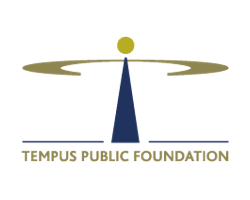2023-04-12
Most universities use online interviews as part of their application process. It is important to prepare to make sure they go smoothly, so let us take you through some key points to keep in mind which might help you achieve just that.
Your chosen host institutions are soon going to contact you regarding the entrance examinations. Meanwhile, it can be very helpful if you carefully read the description of your chosen study programme(s) in the online application system to know what kind of entrance examination you need to prepare for.
Before the interview
Check your contact details
Universities most probably notify you about the exact time and venue of the interview, so check your emails and also your spam folder regularly.
In case your contact email changes for some reason, please inform the institution(s) you applied to and the Tempus Public Foundation as well, so we can update your contact details in our systems.
If you cannot participate in your scheduled interview for some reason, let the university know as soon as possible so that they can reschedule your interview.
Review your application documents and motivation letter
Your interviewer will probably refer a lot to your motivation letter, and they are likely to ask you to elaborate on any points you made in it.
When reviewing, focus on specific points that you might have to explain more about, especially your skills and attributes you can bring to the programme which might set you apart from other applicants, but the most important reasons for choosing your specific programme and host institution. You should be well-prepared to explain why you’re interested in your chosen subject, what is it about the institution that appeals to you and outline your motivations for enrolling in your chosen programme.
Consider your future plans. They may want to know more about your intentions after finishing university and how this particular study programme will help you to achieve that.
Review the course information
Research the institution and the programme you are interviewing to get on to. Carefully read the description of your chosen study programme(s) in the Hungarian Diaspora Scholarship application system and take a look at the institution’s official website for information on how the study programme is structured, what the entry requirements are and what optional specialisations are offered.
This will help you show that you researched the programme and the institution thoroughly and could also help you form some smart questions to ask the interviewers. Make sure these questions have not already been covered in the published information.
Get your setup right
Find a location that is brightly lit and has a clear, aesthetic background where you will not be interrupted. Make sure your laptop is charged, your camera and microphone work and you have a stable internet connection. You can also record yourself and watch it back to see how you come across it.
Make sure you look neat but also that you feel relaxed. You don’t necessarily need to wear a suit but wear something smart that you feel comfortable in. Keep it simple and go for smart casual if in doubt.
Once you are happy with the location and have your outfit prepared, you are ready to go.
During the interview
When the day of the interview arrives, you want to make sure that you are well-rested and as prepared as you can be.
Connect early
Give yourself plenty of time to get settled, test your connection, and make sure that your camera and audio setting is working well. Try to be online at least 5-10 minutes before the scheduled starting time of the interview and don’t keep the interviewer waiting. If you’re having any issues with the technology, get in touch with the university to let them know as soon as possible.
Have your application documents at hand
You may be asked to show your passport to identify yourself or asked questions about your motivational letter, CV or portfolio. Having these next to you means you can look professional when asked about them, and you will not end up feeling unnecessarily stressed and underprepared if you cannot recall what they are asking about.
If something goes wrong
The interviewer might ask questions you do not understand or hear clearly. Do not be afraid to nicely ask them to repeat themselves. It is also perfectly alright if you get some answers wrong to a question, or do not have an answer at all. Universities are usually not looking for perfectly formed knowledge, but are interested in your way of thinking, as it is intellectual ability and potential.
Remember that the admission interview is usually not the only aspect considered when it comes to accepting you as a student. Also, remember that the admission committee have already checked your application documents and they have been impressed by you enough to offer you an interview.
After the interview
Once the call ends and your camera is off, take a moment to reflect on how it went. Whatever the outcome of the interview, take it as a learning experience.
If you have more interviews coming up, you can write down your reflections and think about how you can modify your answers and prepare for the next one.
Wait patiently. After you are done with your interview, it can be difficult to wait a few days or weeks to hear back from the institution. Celebrate, go back to your schoolwork, or move on to preparing for the next interviews you might have.







